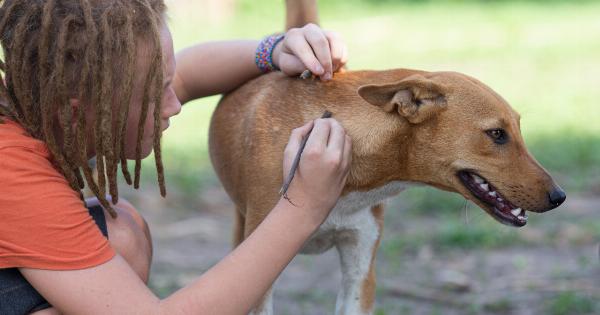Bringing a new puppy into our lives is an exciting and joyous time. These adorable furry friends instantly melt our hearts, and we can’t help but shower them with love and affection.
However, just like human babies, puppies can exhibit certain behaviors that may require professional help. It is crucial for every pet owner to be aware of these behaviors and understand when it’s time to seek assistance.
1. Aggressive behavior
While playbiting and nipping are common in puppies, aggressive behaviors such as growling, snarling, or biting should not be taken lightly.
If your puppy displays signs of aggression towards people or other animals, it’s essential to address the issue early on. Professional help can assist in training your puppy to control their aggression and prevent any potential harm.
2. Excessive fear or anxiety
Puppies may experience fear or anxiety in various situations, such as meeting new people or hearing loud noises. However, if your puppy consistently shows excessive fear or anxiety, it may be a sign of a deeper issue.
Professional dog trainers can help your puppy overcome these fears through desensitization techniques and positive reinforcement training.
3. Destructive chewing
Chewing is a natural behavior for puppies as they explore the world around them. However, if your puppy’s chewing becomes destructive, targeting furniture, shoes, or other valuable items, it may indicate an underlying problem.
Seeking professional help can aid in redirecting their chewing behavior towards appropriate toys and teaching them impulse control.
4. Excessive barking
Barking is a means of communication for dogs, but excessive barking can become a nuisance.
If your puppy barks excessively, whether it’s due to boredom, fear, or separation anxiety, it’s important to address the behavior before it becomes a habit. Working with a professional can determine the root cause of the barking and implement training techniques to manage and reduce it.
5. Persistent house soiling
Potty training a puppy requires consistency and patience. However, if your puppy continues to have accidents indoors despite your efforts, it might be necessary to seek professional guidance.
A professional can assess whether there are any underlying medical conditions or behavioral issues contributing to the problem and provide effective solutions to address it.
6. Excessive jumping
Puppies often jump to seek attention or express excitement. However, excessive jumping can become problematic, especially when your puppy grows and becomes stronger.
Professional trainers can help teach your puppy alternative behaviors to seek attention and discourage them from jumping on people.
7. Separation anxiety
Some puppies struggle with being left alone and experience separation anxiety. Signs may include excessive barking, destructive behavior, or attempts to escape.
A professional can guide you through techniques to gradually desensitize your puppy to your absence and alleviate their anxiety.
8. Persistent food aggression
Food aggression is when a puppy becomes possessive or defensive over their food bowl. This behavior can lead to dangerous situations if not addressed promptly.
A trainer or behaviorist can work with your puppy to modify their behavior and create a safer feeding environment.
9. Excessive possessiveness
If your puppy shows possessive behavior over toys, food, or personal space, it’s crucial to address it early on. This behavior can escalate into aggression if not managed properly.
Seeking professional help can aid in teaching your puppy appropriate boundaries and socialization skills.
10. Inability to settle or relax
Puppies need plenty of mental and physical stimulation, but they should also be able to relax and settle when necessary.
If your puppy seems constantly hyperactive, unable to rest even after physical exercise, it might indicate an issue that requires professional guidance.
Remember, seeking professional help does not mean you’ve failed as a pet owner. It is a responsible and proactive step towards ensuring your puppy’s well-being and fostering a harmonious relationship.
Professional trainers, behaviorists, and veterinarians have the knowledge and expertise to address these behaviors effectively, setting your puppy up for a happy and healthy life.



























